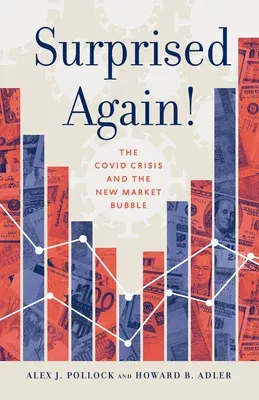"What will not surprise you is the wisdom, wit, and insight that Alex
Pollock and Howard Adler bring to this indispensable guide to financial
prophecy. The future may be a closed book, but you must open--and
read--this one."--James Grant, Grant's Interest Rate Observer
"This book serves as an excellent introduction to modern economics and
monetary policy, presenting it cleaner than in any textbook, and with a
complete absence of pedantry."--Law & Liberty
**"Surprised Again! will demystify finance for students and give
experts a deeper understanding of things they thought they
knew."--Christopher DeMuth, Distinguished Fellow, Hudson Institute and
former President, American Enterprise Institute
**
"A masterful survey of the financial sector and its post-COVID
dependence on easy money from the Federal Reserve. This book is the
first place to turn for a clear exposition of key financial
topics--housing, municipal debt, pension funds, student loans,
cryptocurrencies, and more. The reader will be surprised yet again at
the extent of financial problems lurking below the surface."--Thomas H.
Stanton, Johns Hopkins University
About every ten years, we are surprised by a financial crisis. In 2020,
we were Surprised Again! by the financial panic of the spring
triggered by the Covid-19 pandemic. Not one of the 30 official systemic
risk studies developed in 2019 had even hinted at this financial crisis
as a possibility, or at the frightening economic contraction which
resulted from the political responses to control the virus. In response
came the unprecedented government fiscal and monetary expansions and
bailouts. Later 2020 brought a second big surprise: the appearance of an
amazing boom in asset prices, including stocks, houses, and
cryptocurrencies.
Alex Pollock and Howard Adler lived through this historic instability
while serving as senior officials of the U.S. Department of the
Treasury. Their book lays out the many elements of the panic and its
aftermath, from the massive elastic currency operations which rode to
the rescue by financing the bust with unprecedented government debt, to
the consequent asset price boom, which included a renewed bubble in
house prices financed by government guarantees. It considers key
leveraged sectors such as commercial real estate, student loans, pension
funds, banks, and the government itself. It reflects on how to
understand these events both in retrospect and prospect.

